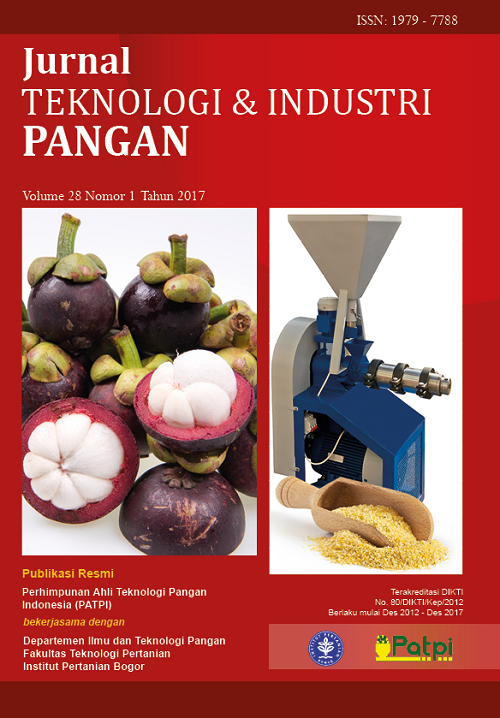KRISTALINITAS DAN KEKERASAN BERAS ANALOG YANG DIHASILKAN DARI PROSES EKSTRUSI PANAS TEPUNG JAGUNG
Abstract
Rice analogues are food products made from broken rice and/or any other carbohydrate sources to have similar texture and shape to those of rice. Corn flour can be used as a material to make the rice analogues because it has various amylose contents ranging from low, medium, and high so that it is possible to make the dough with different levels of amylose contents. High temperature extrusion process may change crystallinity of starch (crystal type of A to V and degree of crystallization). Changes in starch crystallinity may influence the physical properties of the rice analogue produced. This research aimed to assess the effect of flour amylose content and temperature of extrusion on the crystallinity and its impact on physical properties of rice analogue. High amylose corn starch and corn flour were mixed at certain ratios to obtain amylose contents of 16.99, 19.35, 21.72, and 24.09%. The dough was made by adding water to the mixed flour to have a moisture content of 40%. The dough was then extruded at temperatures of 70, 80, and 90°C using a twin screw extruder (BEX-DS-2256 Berto). The observed physical properties were type of crystal, degree of crystallinity, and hardness of the rice analogue. The results showed that the increase in extrusion temperatures from 70°C to 90°C increased the degree of crystallinity of the rice analogues from 7.98-11.49% to 12.15-13.61% and hardness from 4.06-4.91 kg to 4.74-8.20 kg. The increase in amylose contents (from 16.99% to 24.09%) enhanced the hardness of the rice analogue from 4.06-4.74 kg to 4.91-8.20 kg but did not show any significant effects on the degree of crystallinity. The degree of crystallinity is positively correlated with the hardness of rice analogue (correlation coefficient r=0.8).

